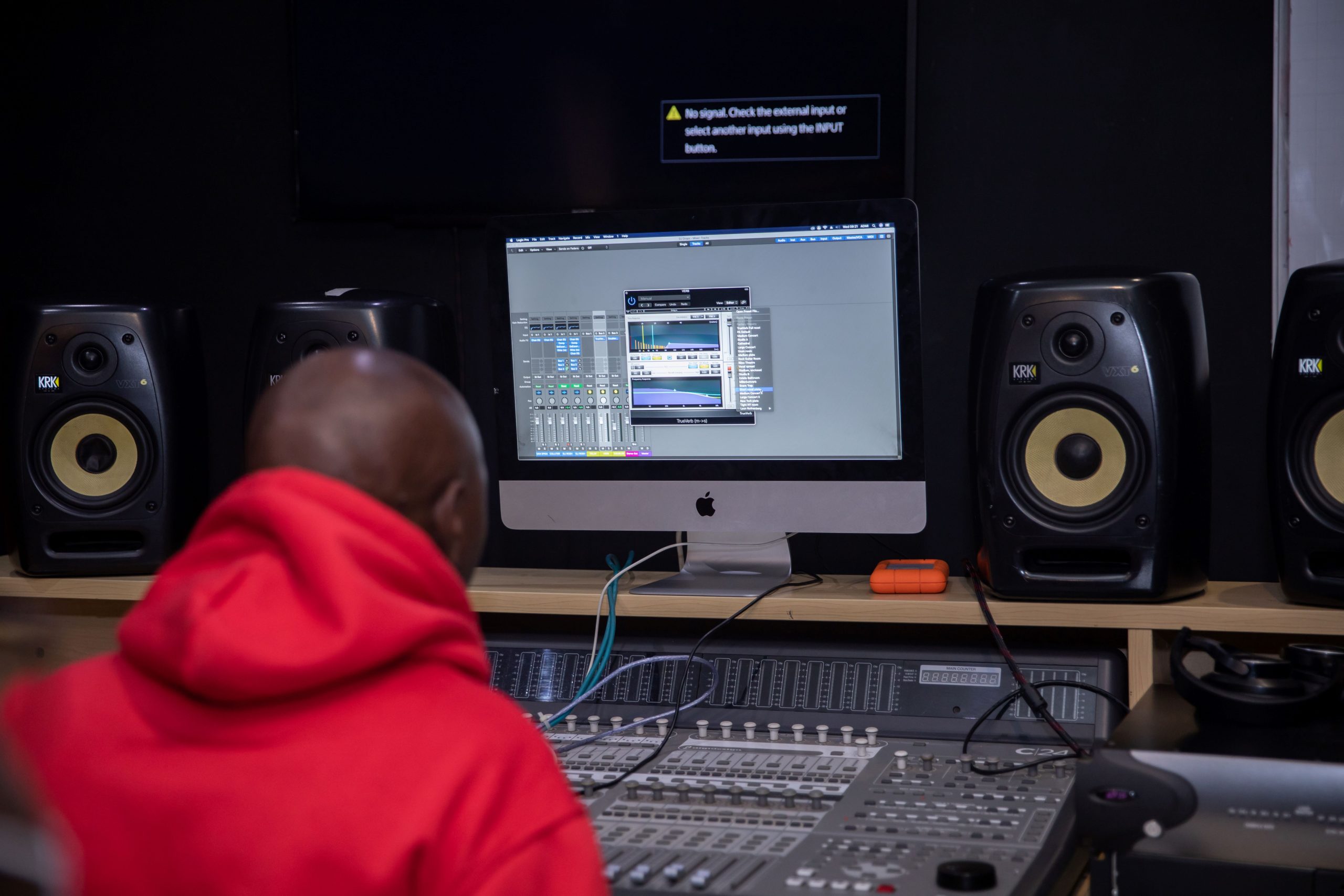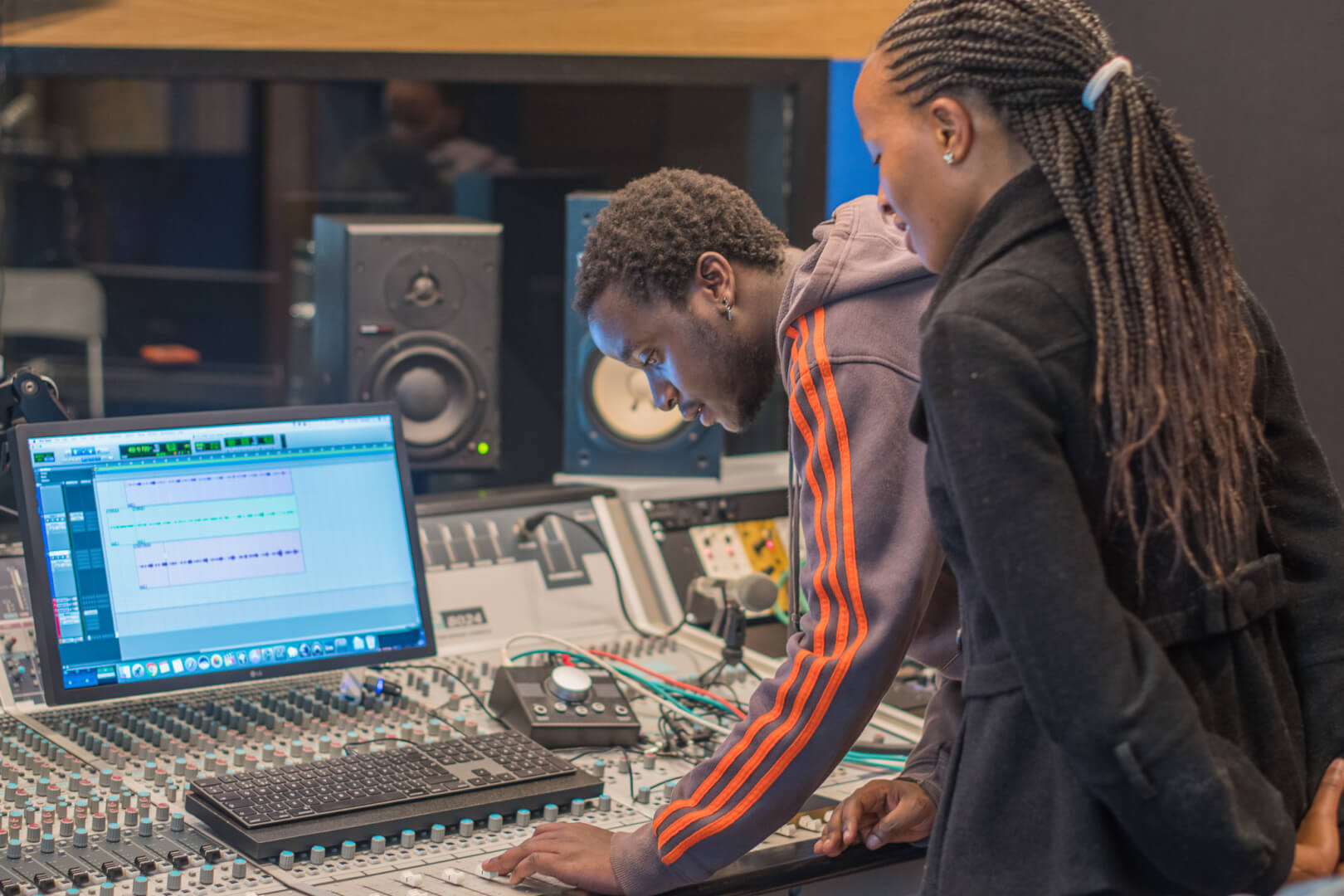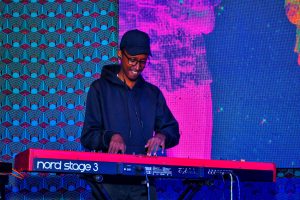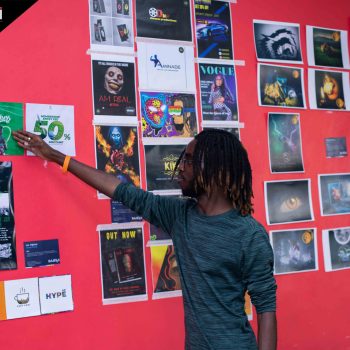
An Insider’s Perspective: The Power of Sound in Film and Music
When you settle in to watch your favorite movie or to enjoy your much-loved tunes, you might not realize the essential role that sound plays
Our sound engineering course provides training in all areas of sound. Live, studio, sound recording, mixing, mastering, & film sound design.
Course code: SE100

ADMI’s Sound Engineering programme trains students in all areas of sound production, including microphone selection, studio set-up, mixing, mastering, digital audio editing and live sound recording.
Students will discover how to use microphones, consoles, and digital audio workstations (DAWs) to record and enhance performances.
Over the course of the two years, students learn to operate state-of-the-art sound equipment and set up live gigs.
Graduates emerge from the programme with the technical skills they need to pursue careers as sound designers, dialogue editors, boom operators, and studio engineers.
Upon successful completion of the Sound Engineering course, you will be able to:
As a sound engineer in a recording studio, you would make high quality recording of music, speech and sound effects. If you enjoy working with electronics and are interested in music and sound, this could be the ideal job for you. In this job, you would need to have a good sense of hearing. You would also need to understand musical pitch, timing, and rhythm. With experience, you might also act as Studio Manager. You may also be known as an audio engineer or recording engineer.
Other jobs that you could take up with the qualification may include:
ADMI prides itself in having modern, state of the art equipment that meet global standards. As a sound engineering student you will have the opportunity to use the following equipment:

ADMI has also invested in industry standard software including:

Hendrick Samuel
Sound Designer/Audio engineer, Music Producer/Educator
Hendrick Sam is an industry leading music producer, audio engineer, sound designer, multi-instrumentalist and music educator.
His niche in musical work spans all genres and disciplines, from Classical Music, to Jazz, to Electronic Music, Ethnic Music, live performance, scores and sound for film and animation.
Hendrick has worked and is working with many artists, notably Bien-Aime Baraza, Savara and Chimano from Sauti Sol, Nviiri and Bensoul from Sol Generation, Khaligraph Jones, Maandy, Fena Gitu, Brandy Maina, Noel Nderitu, Watendawili, The Decimators (Boneye, Konkodi & Brian Nadra), Okello Max, Mordecai of H_rt the Band, Phy, Pitson, Earlwin, Manasseh Shalom, and recently Ayra Starr and Ruger from Nigeria.
High School Education:
KCSE C- (Minus) or KCE division II, KACE one (1) Principal or an equivalent qualification or Certificate of Experiential Learning or KNQF. Basic computer proficiency is required.
To apply online please visit: https://apply.admi.ac.ke/
Mode of study: Full time – 4 semesters + 1 semester internship
Intakes: January, May, September
Campus: Caxton House, CBD Nairobi
We understand that choosing the right educational path is a crucial decision and we are here to guide you every step of the way. Simply submit your contact details in the form and our team will reach out to provide personalized assistance. Let’s take the first step towards realizing your aspirations!

When you settle in to watch your favorite movie or to enjoy your much-loved tunes, you might not realize the essential role that sound plays

Are sound engineers in high demand? What do sound engineers do, and where can one study sound engineering? These are just a few questions aspiring

Tough. Resilient. Firm. These are the words that come to mind when you hear the word “Imara”, a Swahili word associated with strength and durability.